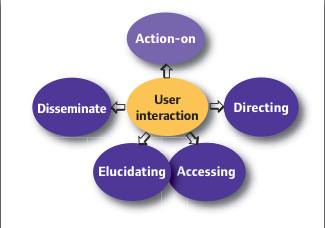
A long time ago, Alexis de Tocqueville wrote in Democracy in America that were going to sacrifice freedom in favour of security. It is the logical evolution of democracy, where citizens are frightened by the threats of insurgent people who want to destroy their confortable althoug sometimes unfair system. The last terrible episodes of our recent History show that the military confrontation between countries has been replaced by the fight against those destructive groups. The attackers could come from other countries but also they could be people without national indetity. Even they are members of our communities.
The new scenario has consequences on National Security strategies and is very well described by the members of the Institute of Public Policy Research in the report The National Security Strategy: Implications for the UK intelligence community:
“The threat from international terrorism and from proliferation of the means of causing mass disruption is already present.There is general recognition that major changes will flow from the diffusion of power to the rapidly growing economies of China and India. Likewise, the growth of the influence of non-state actors, be they terrorist or insurgent groups, international criminal gangs, global multinationals or non-governmental organisations, will profoundly influence international affairs”.
A main conclusion we can draw from the paper is that the strategy of national security is going to be more visible to society and that they will require a wide collaboration of every citizen. We will have to be used not only to the proliferation of surveillance cameras, but also to be a sort of spies who detect any strange behaviour in the environment and inform to the security officials. On the one hand, the new security paradigm wants that “people can go about their daily lives freely and with confidence, in a more secure, stable, just and prosperous world”. But at the same time, Government will expect we are prepared to discovering conspiracies and living in a suspicious society. The report proposes to work in three areas:
1. A redefinition of National Security
“The state has traditionally been the focus of foreign, defence and security policies while national security has been about the protection of the state and its vital interests from attack by other states. Now, the concept has broadened to cover the responsibility of government to tackle a range of threats to individual citizens, families and businesses”.
2. Adopting anticipatory policies
“Not just to be able to make predictive judgements about events but to realise what the world would then look like and to identify and implement policies that would reduce the risk to society, both by prevention where that is possible and by preparation where not”.
3. Building national resilience around a risk management approach
“A requirement set out in the National Security Strategy is therefore to build up national resilience, defined as the ability of society to withstand disruption and to be able to bounce back into shape as quickly as possible”.
The report studies how it will develop the cycle of intelligent activity and proposes changes in the steps of access, elucidation, dissemination, action and direction. In all of them we find that coopearation, citizen commitment and visibility are key elements of the new security strategy. It is finished the time of Cold War, where the world of spies was far from the everyday life. However, the authors point out that the renovated methods pursuit the same principal purpose:
“The ultimate object of intelligence will remain to enable action to be optimised by reducing ignorance; and of secret intelligence to achieve this object in respect of information that others wish to remain hidden. The primary purpose of intelligence will therefore continue to be to generate organised information that can be put to use to acquire relative advantage”. Some British think tanks are progressing a lot in serious research.

Deja una respuesta